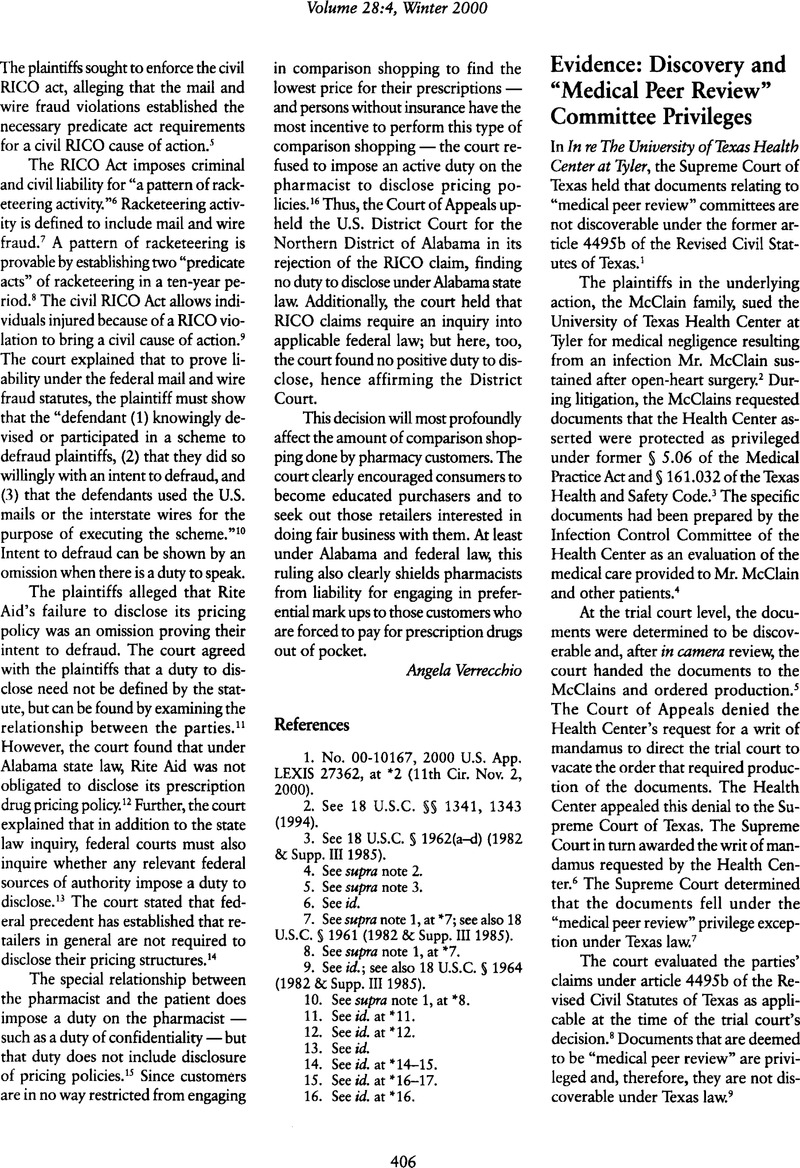See
id. at
*4. The Supreme Court of Texas concluded that the trial court's release of the documents did not constitute a privilege waiver by the Health Center. The Supreme Court explained that the privilege belonged to the Health Center and the trial court's production rendered the Health Center's production involuntary.
Id. The trial court gave the plaintiffs documents, without notice to the Health Center, that the Health Center had submitted at an
in camera hearing. Once the Health Center objected, the trial court ordered the documents' return. See
id. at
*1.
Google Scholar